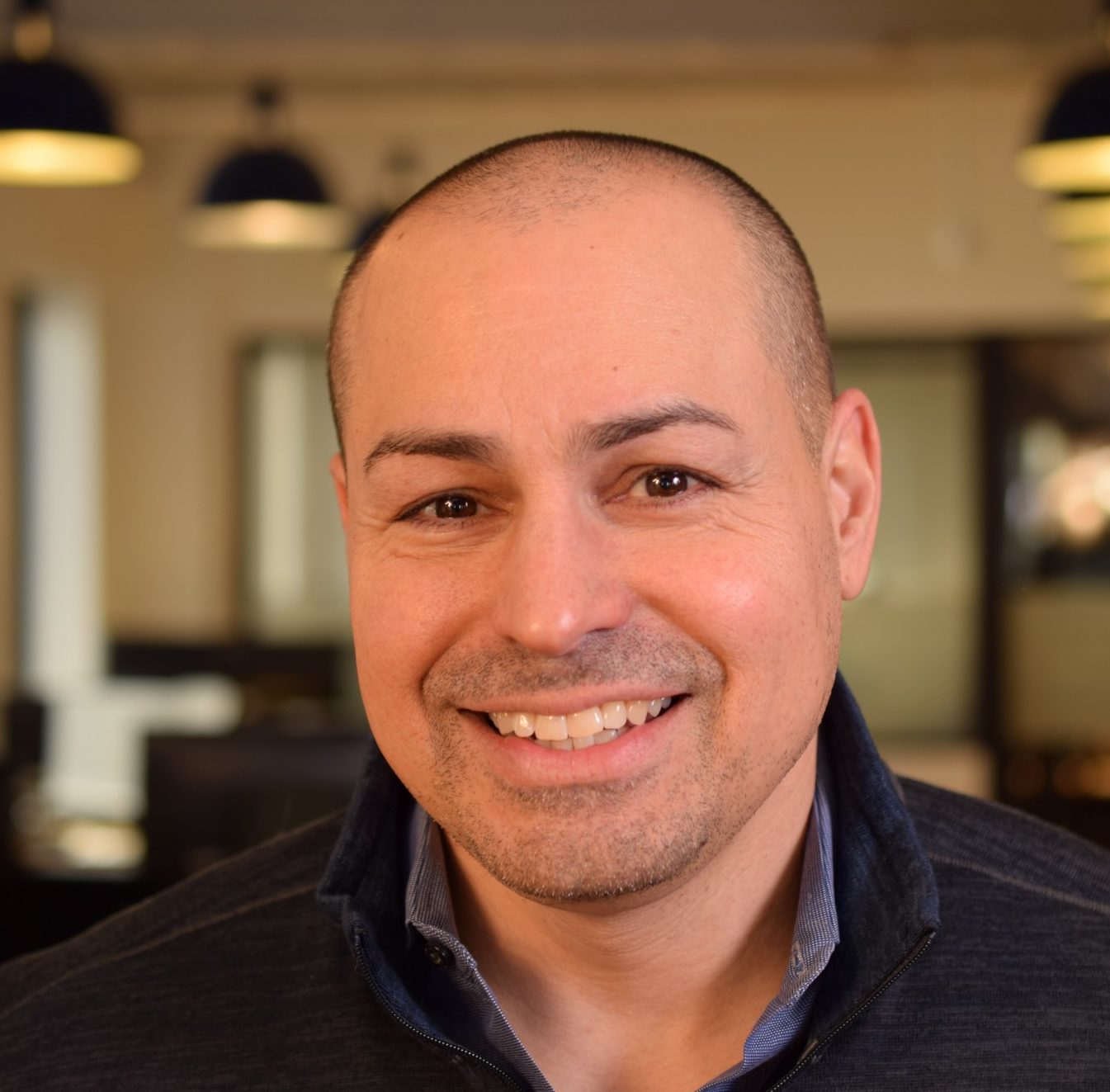What’s the one thing holding you back from becoming a great leader? Chances are it’s sitting right next to a hard conversation. Listen to Peter Bregman talk about how to build emotional courage and lean into those moments.
I’m well. Thanks, Neil. How are you?
I’m doing great. Thanks. Peter, I want to start with just asking you how you want to be known. You’ve come a long way in your career. You’ve been so many things. What is most important to you in terms of leaving your legacy?
I’ll answer this in a way that is just coming to me right now but I haven’t put a lot of thought into this particular answer. What I’ll say is helping people show up as adults in the room, and you know, when I think about the outcome of what I spend my time doing, it’s helping, in many cases, very successful people become great leaders and I know a lot of people who are very successful who are not particularly strong leaders. I know very, very few successful leaders who are not also successful people. So, I kind of wanted to help bring another level of leadership of capability of people to inspire those around them and to live lives that they’re proud of and impact and connect with people in powerful ways.
You said “showing up as adults” which is really interesting to me. Do you feel like there’s a level of maturity that most of us haven’t reached when it comes to the business world?
I think there’s a lot of things that we do in our lives that come out of very young places, you know? I think that the way we react to people when they give us feedback, the way we react to situations that might be uncomfortable to us. We react in ways that we were conditioned to react and also that brings up all sorts of fears that come from very young places and I think, as adults, that it’s useful, we could be most powerful, and as leaders, we can be most influential and successful when we act out of a place that’s not conditioned from a very young age.
Well, that leads us well into your book. And there’s one line from it I want to start with where you say, “if you can feel everything, you can do anything.” Interesting advice. Not something you would really expect to see in a business book. So, I want you to unpack that a little bit for us.
It’s actually the most fundamental driver of our behavior is our emotions and we don’t talk about them, and emotional intelligence is really a way of talking about it without actually engaging with it in a certain sense because it’s a very intellectual conversation. But I’ll just do a quick thought experiment which I share in the book also. Think about conversation, a difficult conversation that you’re not having, a difficult conversation that you know you should have that you plan to have, and yet, you’ve pushed off.
And now consider why you haven’t followed through, and by the way, I’m talking about a conversation but this could be any kind of risk, any bold move, anything, right? Consider why you haven’t had that conversation. And I’m willing to bet you know everything you need to know in order to have it, that you have had plenty of skill in order to have it, that you’ve had time and opportunity to have it. So, those are usually the things that we address when something’s not happening. We train people or we do time management, but those are not the things that are getting in the way of following through on our most important work.
So, what is it? And it’s because there’s something that we don’t want to feel. If I have that hard conversation, I might have to feel the disconnection between us and then I have to feel conflict, I might have to feel shame if you come back at me, you know, you might be defensive and that might make me defensive, or you might get passive aggressive and I’d have to feel the discomfort of that passive aggressiveness.
And underlying it all, if we are willing to feel everything, the quote you were talking about earlier, if we’re willing to feel the conflict and the disconnection and the shame and the defensiveness and the passive aggressiveness, if we’re willing to feel everything, then we could do anything, then nothing stops us from moving forward and what’s most important to us.
And so, it turns out that the key to being an effective leader and an effective person in the world, the key is to be willing to feel everything which frees us, it liberates us to act in ways that we believe will bring us value and value to the people around us and to the world.
So, give us some examples from the business world about how people are unwilling to feel those hard feelings.
The whole conversation in and of itself is one. Here’s another. Somebody gives you feedback and you immediately get defensive, right? And you immediately explain and the defensiveness can be very subtle. You could just explain, “but here’s what you don’t understand.” And you explain, well, why? Well, because you don’t want to feel that you’ve done something wrong when you get feedback, you don’t want to feel misunderstood. You don’t want to feel those things.
Well, here’s the thing. If you’re going to lead, you will be misunderstood and you better become comfortable with the feeling of being misunderstood because if you have to control how everybody sees you, you probably can’t do anything public because people are going to misperceive you. And so, you have to be willing to feel that and you have to be willing to feel scared in order to do scary things. You’re going to have to speak in public. You’re going to have to take a stand. You’re going to have to make a decision. All of those things require that you feel something that might be very uncomfortable to you.
So, it’s, like, I can’t imagine going through an hour in business or in an organization without feeling stuff, and if we’re protecting ourselves against feeling things, then we’ll probably do everything we can to make everybody around us happy and not anything else and that makes for very ineffective leadership and a very stressed out, burned out life.
When you’re talking about feeling these things, I feel two tensions in me. One is that you’re saying we need to feel them to be present, to be in the middle of that feeling and to really feel it deeply. And the other is to more observe the feeling, more as a bystander, to step back and see the bigger picture. What kind of tension does that bring up in how you want people to lead with emotional courage?
I think it’s both. I think observing it from the outside is detached a little bit and it might make it easier to experience the feeling without really actually fully feeling it but I think the goal isn’t to make those feelings go away. The goal is to recognize that they exist, to feel them, but to continue to act even in the face of them. So, that’s sort of ultimately the goal and I think you have to both feel it and be able to step above it to some degree in order to do that.
As people go through your material, your book, your trainings, all the other things you do, how does the vocabulary change as they interact with a lot of these concepts?
The goal is to bolster our emotional courage, to build our emotional courage muscle that being emotionally courageous is not something that you learn about and then can immediately do. You have to actually experience the discomfort of some of these feelings. And when you feel the experience of discomfort and act in the midst of the discomfort, you then increase your capacity to act powerfully in the moment, you’re increasing your emotional courage. So, the way I write the book is that there is lots of activities, you know, lots of chapters, 48 chapters. There’s 12 chapters in each of the categories that I talk about in the book which is building confidence in yourself and connection to others and commitment to purpose and emotional courage. And each chapter has something to do that sometimes takes zero amount of added time. It’s just the way you do something differently. A lot of times doing those things will actually save you time because it’s about taking a little risk and getting some traction. But the way you do it, the way you build that muscle is by using the muscle. So, I don’t want people just learning about emotion courage. I want them developing their emotional courage because that’s what translates into an outsized impact on the world.
I want to come back to a concept that you alluded to earlier, and is also in your book, where you say that, as children, we used to have all this emotional courage but we lost it along the way. Can you dive deeper into that for us?
Yes. So, when we were really young children, we were very willing to express ourselves, to take risks, to look dumb, to do whatever. It didn’t really matter to us. We were just in ourselves. And then, as we got older, and not even that much older, just a little older, and people castigated us for the way that we acted or shamed us, it was actually painful and we became hurtful. But there’s something else, too, which is, as a child, a young, young child, you’re in your full expression, like, you can express yourself in any number of creative ways. There’s very few very young children when you say, “Draw a picture,” and they’ll say, “No, I’m not a good drawer,” right? That’s not going to happen.
But almost every adult, unless you’re incredibly skilled, will say that, right? So, we’ve learned to hide parts of ourselves because we don’t think that those parts of ourselves are good enough. And so, we hide it. And we’ve hidden it because we’ve been changed in some way or other usually by people that looked at us and go, “Wow, you’re a terrible drawer.” And then for the first time in our lives, they think, “Huh?” And it could be much more subtle than that, you look at a picture a little kid draws and say, “Oh, what is that?” And they’re like, “It’s a dinosaur. Can’t you tell?” And you’re like, “No, it’s all right. I couldn’t tell. It doesn’t look like a dinosaur,” and now they think that they can’t actually express themselves. And so, they originally have that full expression and then they shut it down. And so, as adults, we have to reclaim it.
So, very, very young children have it. You grow up just a tiny bit and you’re still a child but you start to hide aspects of yourself and that continues on. And by the way, you do it because you absolutely need, as that young child, you absolutely need the approval of the people around you. It’s a life or death issue. When you’re two years old, if your caretakers are not going to take care of you, then you die. And so, it’s a life or death issue that you please the people around you. But we forget when we’re 50 that it’s no longer a life or death issue if we please people around us, and actually, we could and it’s okay to disappoint some of the people around us. But that’s part of what being an independent human being is. So, that’s what it means to be an adult in the room I think is to be willing to take full responsibility for who you are and to take risks that you might get rejected but you’ll survive.
You said that it’s okay to disappoint people, which, again, is kind of what you would think of as counterintuitive advice in the business world. What does it mean to disappoint your manager and your leader?
Yeah. By definition, you can’t go around pleasing everybody because then you will have no particular added value. Your added value is going to come from being able to take a stand, by having an opinion, by working toward something, by influencing other people, and if you make any kind of decision with any kind of boldness, it’s going to annoy some people. And so, the only way that you can really not either annoy people or not disappoint people is to kind of be neutered, right? I mean, it’s to be kind of shallow and people pleasing around everything that you do, and again, that completely dilutes our impact in the world.
So, I think you have to, very responsibly, you’re going to disappoint people in business and sometimes your manager is going to give you very clear objectives of the top three things you need to accomplish, and then, 15 things later, they’re still throwing stuff at you and saying, “Can you do that? Can you do that? Can you do that?” And you might have to sit and have that conversation with the manager and say, “Look. I can do all of these things, but when I do all of these things, that’s going to draw my attention away from the top three things.” So, is that still our priority and do I need to push back against you to say, “Look. If we do these other 15 things you’re wanting us to do, we’re going to dilute the impact on those top three and is that a conscious decision you want to make or do you want me to push back on you and say, you know, these 15 things you’ve added to the list, we really can’t do in order to really do a stellar job in these three things that we had talked about.” You might have to push back against your manager and possibly disappoint your manager but that’s part of it.
This is actually a nice freeing thought for me when I think about the fact that, cognitively, I know I’m going to disappoint my manager at certain times but I don’t act like that’s true. I always try to make sure that this person is 100% happy with what I’m doing all the time. Whereas if I live with the attitude that it will happen, I can almost choose, okay, this is where I will disappoint, this is where I won’t disappoint, and it gives me a lot more freedom to know how to act in those situations.
Thank you. And I would also say that the power comes in being responsible about the way you disappoint someone, like not to just not do the work and hope they don’t see you and hide behind a tree when they walk by, but to confront it and to say, “Look,” you know, the conversation that I suggested, like to be able to say, “I’d not going to be able to do all this stuff and here’s why and I think it would be a mistake if we did and I want to make sure I communicate with you.” I had someone who was supposed to get back to me yesterday by 3:00 o’clock and never did, and then, you know, either late last night or this morning got back to me. And it’s a small little thing but it’s an erosion of confidence and it kind of says, you know, I don’t know that I can really trust this person. Now, had the person called me at 3:00 o’clock or emailed me and said, “Look, I know I said I would get back to you by now but there’s a couple of things that have happened so if it’s okay, I’m going to loop back with you later tonight or tomorrow morning,” that would have actually established tremendous confidence. So, that’s also what I mean by being an adult in the room in a sense which is take responsibility for our actions and follow through on our commitment, which doesn’t mean pleasing everybody.
Let’s flip the table a little bit and talk about being a manager. How can you establish a culture where people feel free to be emotionally courageous? What are some things people can do?
I think it’s hard but what you do is you create space for people to take risks and you give them support for taking those risks, and sometimes the risks will pan out and sometimes they won’t, but if you slam down on them when they don’t pan out then they’re going to learn not to take risks, even if you congratulate them when it’s successful. So, you have to prioritize risk taking, calculated, thoughtful risk taking, but you have to prioritize risk taking, and that, as a manager, that really supports people’s willingness to go out on a limb and they’re going to feel things. And the other thing I think you could do is to be direct with people, in a caring and compassionate way, but to be direct with them. And also, to be a role model, to receive feedback, to ask for feedback to encourage people to tell you what they think, and when they do, to just say thank you and continue on. Don’t debate it with them. Don’t get defensive. So, you can kind of show them what it’s like to be emotionally courageous and that you could create space for them to take the kinds of risks that will develop their emotional courage.
So, the manager needs to be able to lead the way in entering into those hard conversations and showing that it’s not something to be scared of, right?
Absolutely. Or it’s not that it’s not something to be scared about. You may be scared about it, but do it anyway.
So, Peter, you’ve been doing this for a long time. You’ve written a lot of books about several different topics, about productivity, about leadership, about management. At what point did you kind of start to look around and see that there’s a theme that drives all these things I’m trying to pull together and really it’s about emotions? At what point did that strike you?
You know, I’ve always explored this idea of how do we get massive traction on our most important work and what gets in the way and I’ve been playing with it from a lot of different dimensions and I’ve looked at time management. I wrote a book about managing change in organization, ownership and engagement, getting people engaged. I wrote a book about habits and how we can change our habits and how we get led to certain habits that are dysfunctional or not useful to us and how we can replace those with more productive responses. And I feel like “Leading With Emotional Courage” is the combination of all of this work in a sense which is it’s really the missing key. If you could do all of that stuff, this is the key to following through on what’s most important, is that willingness to feel. So, I feel like maybe not quite an “ah-ha!” moment, but an “ah-ha!” observation that, oh, this is the key, this is what gets in the way of our willingness to take powerful action.
Is there a way for someone to do a self assessment to figure out kind of on what level of the spectrum they are in terms of being emotionally courageous or what’s the next step they can take to become more?
In the book, I have an assessment. It’s actually online at bregmanpartners.com, too, if you go to bregmanpartners.com and you click on the book and resources. It’s prettier than in the book because you get a report that gets spit out, but it’s basically a question for each chapter, and it’s very, very simple. And the idea is do you do this well or do you not do this well. Do you stay steady and grounded in the face of political opposition? I either do it well or I don’t do it well, and if I don’t do it well or I want to get better at it, then I’m going to hit no, and if I do do it well, then I’m going to hit yes. Do the people I know or around me feel seen by me? What do I think? You know, it’s a self assessment so you may not be right, but take a guess. And that guides you to sort of say where are my strength? In confidence, in connection, in commitment, in courage? Where are my strengths and how do I build on these strengths? And because each question is affiliated with a chapter, you can also go right to the chapter that relates to that particular item that you said no to in order to get some specific support in that. So, I like it as a guidance tool. I don’t think it establishes are you good or not good at this, but it gives you a sense of direction as to where it might be useful to focus on.
Well, Peter, you’re a pretty easy guy to find on the web, but where do you want people to go to stay in touch with you?
Thank you. If they go to bregmanpartners.com and you can get a ton of free stuff and all of my articles are on there and you can also check out the book and there’s a bunch of podcasts and things like that.
Well, Peter, it’s been great to talk with you. I’ve learned a lot from this conversation. I appreciate you sharing your insights and we look forward to interacting with you more in the future.
It’s my pleasure. Thank you for having me on the show and I’m delighted to have an impact. So, thank you for sharing that.
Recognized as the #1 executive coach in the world by Leading Global Coaches, Peter Bregman coaches CEOs and senior leaders in many of the world’s premier organizations. Having started his career teaching leadership on wilderness and mountaineering expeditions, Peter is CEO of Bregman Partners, an executive coaching company that helps successful people become exceptional leaders and stellar human beings.
Peter is ranked as a top 30 thought leader by Thinkers 50 Radar and selected as one of the top 8 thought leaders in leadership. He is the award-winning, best selling author and contributor of 16 books, including, most recently, Leading with Emotional Courage: How to Have Hard Conversations, Create Accountability, and Inspire Action on Your Most Important Work. His book, 18 Minutes: Find Your Focus, Master Distraction, and Get the Right Things Done, was a Wall Street Journal bestseller, winner of the Gold medal from the Axiom Business Book awards, named the best business book of the year by NPR, and selected by Publisher’s Weekly and the New York Post as a top ten business book. He is also the author of Four Seconds: All the Time You Need to Replace Counter-Productive Habits with Ones That Really Work, a New York Post “Top Pick for Your Career” in 2015, and Point B: A Short Guide to Leading a Big Change.
Peter is the host of the Bregman Leadership Podcast, which offers insightful conversations with industry thought leaders on how to become more powerful, courageous leaders. He is also a regular contributor to the Harvard Business Review, and his articles and commentary appear frequently in Bloomberg BusinessWeek, Fast Company, Psychology Today, Forbes, The Financial Times , PBS, ABC, CNN, NPR, and FOX Business News.
Peter created and leads the Bregman Leadership Intensive, a four-day program that transforms the way people lead by increasing their confidence in themselves, their ability to connect with others, their commitment to what’s most important, and their emotional courage.
Peter designed the Bregman Partners proven, proprietary Big Arrow process to align people to work together to accomplish an organization’s most important work. The Bregman Arrow Measurement tool (BAM)©tm quantifies the leadership and organizational gaps that block successful execution.
He has implemented his proprietary solutions with CEOs and senior leaders in many of the world’s premier organizations, including Allianz, American Express, Brunswick Group, Goldman Sachs, Morgan Stanley, Deutsche Bank, JPMorgan Chase, FEI, GE Capital, Merck, Clear Channel, Nike, UNICEF, among others.












